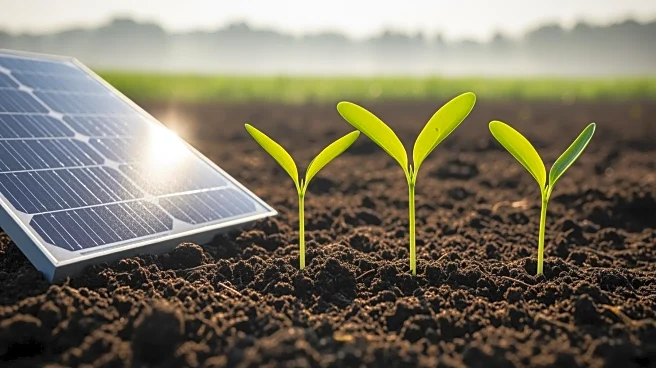What's Happening?
Agriculture is responsible for a significant portion of global greenhouse gas emissions, yet it is also vulnerable to climate change impacts. A new approach, centered on net zero, nature positive, and
nutritionally balanced farming, aims to transform agriculture into a climate solution. This involves reducing emissions, restoring biodiversity, and improving human nutrition through practices like precision fertilization, methane-reducing livestock feed, and regenerative farming techniques.
Why It's Important?
Transforming agriculture into a climate solution is crucial for reducing emissions and enhancing food security. By adopting regenerative farming practices, agriculture can contribute to climate change mitigation, restore ecosystems, and provide healthier food. This approach offers a comprehensive framework for integrating climate, nature, and nutrition goals, potentially leading to more sustainable and resilient food systems.
What's Next?
Scaling up these farming practices requires government support and incentives to encourage widespread adoption. The ongoing COP30 talks highlight the need for a unified pathway to make agriculture a central part of climate solutions, emphasizing soil security and sustainable farming practices.









